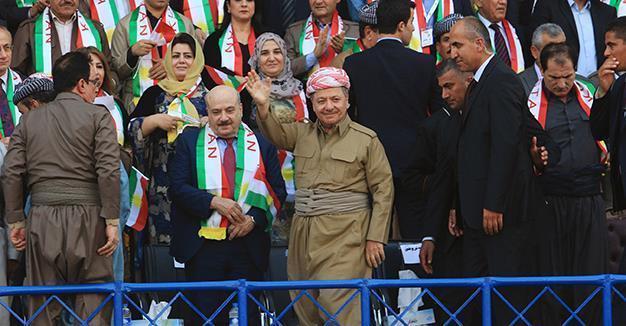Iraq demands suspension of Kurdistan independence vote
BAGHDAD

REUTERS photo
Iraqi Prime Minister Haider al-Abadi said on Sept. 18 that he had formally demanded the Kurdistan Regional Government (KRG) region suspend an independence referendum that regional actors and Western powers fear could undermine a campaign against Islamic State of Iraq and the Levant (ISIL).
The Iraqi Supreme Federal Court approved Abadi’s demand to consider “the breakaway of any region or province from Iraq as unconstitutional,” his office said in a statement.
“Holding [the referendum] will lead to dangerous outcomes, resulting in the division of Iraq and threatening civil peace.”
The court, in charge of settling disputes between the central government and the provinces, “ordered” the government of the autonomous Kurdish region to stop the referendum.
The court’s order bears legal weight but it cannot be implemented in practice in the autonomous KRG’s region, which has its own police and its own government, led by Massoud Barzani.
Iraqi state TV said the court had issued an “order to stop the procedures of the referendum planned on Sept. 25 [...]by the Kurdistan regional presidency.”
Ankara and Baghdad are looking in the “same direction” on the issue of territorial integrity of Iraq, President Recep Tayyip Erdoğan said on Sept. 17. Speaking to reporters at Istanbul’s Ataturk Airport before leaving for New York to attend the 72nd session of the UN General Assembly, Erdogan said: “We will hold a separate meeting with Haidar al-Abadi, but as far as I see, we are looking in the same direction. What is this direction? The territorial integrity of Iraq.”
The United Nations, the United States, Britain and France have renewed over the past 48 hours their rejection of the vote, seen as a distraction from the war on ISIL militants who continue to occupy parts of Iraq and Syria.
They called on Arbil, the seat of the Kurdistan Regional Government, to talk with Baghdad to resolve land and power sharing disputes.
Iran warned of unspecified consequences if the Iraqi Kurds went ahead with their plans. But the Kurdish leadership in northern Iraq showed no sign of flinching despite coming under intense international and regional pressure to call off the Sept. 25 vote.
“Any damage to this strategic principle [of Iraq’s unity] would lead to the revision of and serious alteration in the existing cooperation between Iran and Iraq’s Kurdistan region,” said Ali Shamkhani, the secretary of Iran’s Supreme National Security Council, according to state-run Press TV.
After the 2003 U.S.-led invasion ousted Saddam, the region secured constitutional recognition of its autonomy, but remained part of the Iraqi state.
